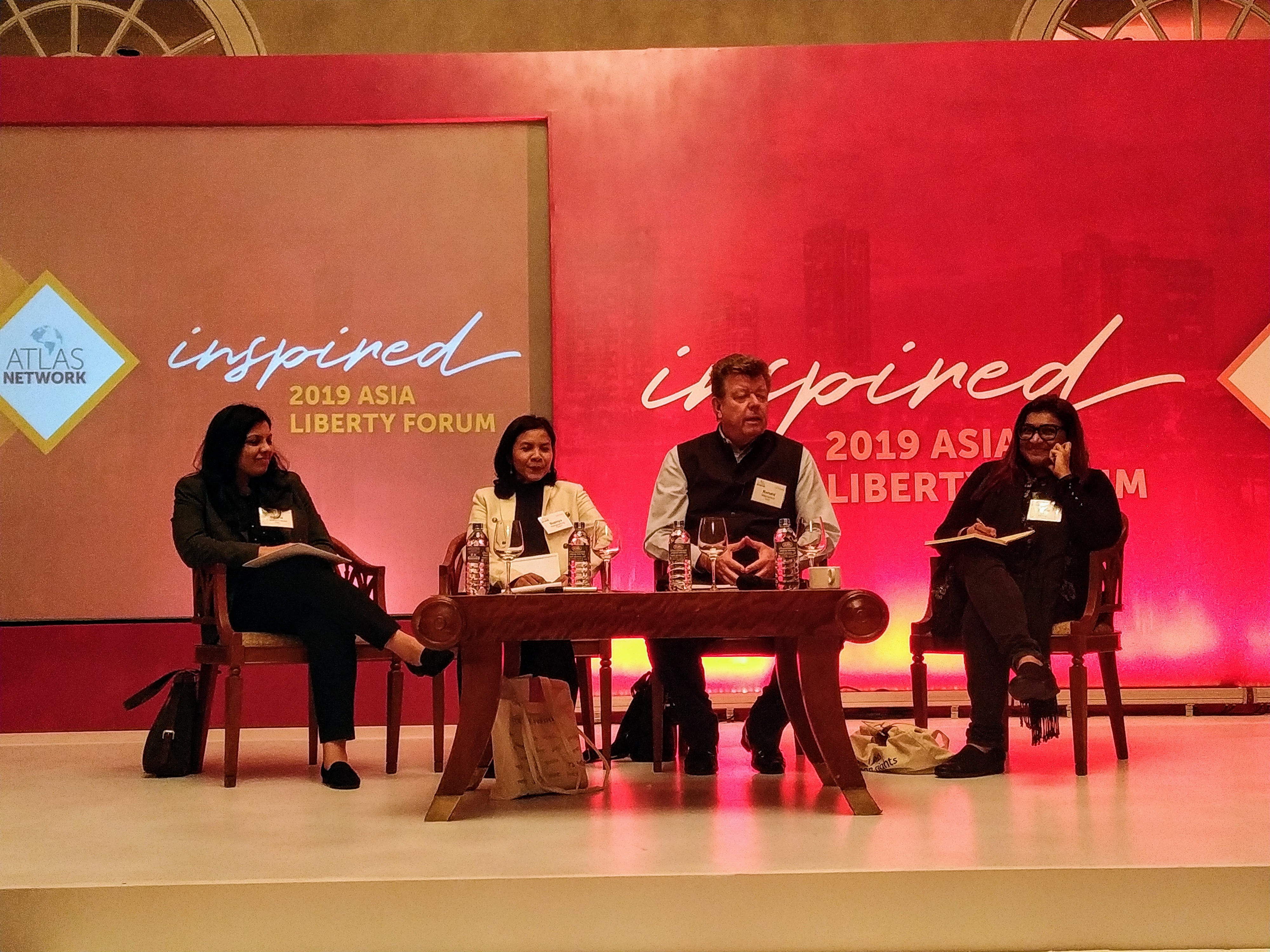Asia Liberty Forum
Asia Liberty Forum 2019: Challenges of the Privacy in Digital World

Asia Liberty Forum 2019: Challenges of the Privacy in Digital World
Attended the Asia Liberty Forum 2019, was reminding me, my first journey connected to freedom movement at a global level. Five years ago, I was the person who lacks the confidence to communicate in English. However, the Asia Liberty Forum 2014 has changed my self. I realized the importance to learn more than one language in the era of globalization and digitalization which not limited to English. I met with inspiring peoples who advocates freedom all around the world, especially from Asia. More importantly, I learned the “freedom” it’s not the ideas from the west, but has a long history rooted in Asian civilization.
It seems like a refresher course, but full of new knowledge and experience. Having the opportunity to learn the uniqueness of innovative work from various backgrounds and organizations is something that is very valuable. Today, freedom has misunderstood and misinterpreted as a threat to the states and peoples which actually uphold human dignity and improve the quality of human life. Without the competent of rule of law, it can be easily manipulated by the government or those have power into their own benefits.
As is known, liberal are pro to innovation. However, in the age of business transformation or digitalization, the technology irresponsibility and manipulation can negatively affect human life especially on right to privacy. For instance, Facebook was a hero for the Egypt Revolution, but last year involves in the Cambridge Analytica data scandal which millions of people's Facebook accounts used for political purposes without consent. Using the property of others without permission is a violation of human rights.
Right to Privacy as a Fundamental Right
At the international level, United Nations has recognized the right to privacy as fundamental right.
In the Article 12 Universal Declaration of Human Rights (UDHR) states:
No one shall be subjected to arbitrary interference with his privacy, family, home or correspondence, nor to attacks upon his honour and reputation. Everyone has the right to the protection of the law against such interference or attacks.
Besides that, the Article 17 International Covenant on Civil and Political Rights (ICCPR) states:
1.
No one shall be subjected to arbitrary or unlawful interference with his privacy, family, home or correspondence, nor to unlawful attacks on his honour and reputation.
2.
Everyone has the right to the protection of the law against such interference or attacks.
In addition, the emerging of new information and communication technologies to enhances the capacity of governments, companies and individuals, the United Nations General Assembly adopted the Resolution 68/167 on the right to privacy in the digital age in 2013 for reaffirming the Article 12 UDHR and Article 17 ICPPR.
Experiences of Right to Privacy in India, Pakistan and Thailand
In India, the judgement of Justice K.S. Puttaswamy (Retd) vs Union of India (2018) by the Supreme Court has declared the right to privacy considered as a fundamental right which protected as an intrinsic part of the right to life and personal liberty under Article 21 and as a part of the freedoms guaranteed by Part III of the Constitution. This case is about the Union government that wants to introduce the Aadhaar scheme to collect Indian biometric identity data.
One of the panellists, Smitha Krishna Prasad from the Centre for Communication Governance at National Law University says the right to privacy on the legal perspective associated and related to freedom of expression. Especially, when someone wants to express something to their friend and at the same time wants to keep it private or secret among them to preserve their dignity.
Meanwhile, in Pakistan, the right to privacy states as a fundamental right in the Article 14(1) of the Constitution of the Islamic Republic of Pakistan confirms that the dignity of man and, subject to law, the privacy of home, shall be inviolable. However, in 1996, the bedroom phone of chief justice Sajjad Ali Shah has tapped during the tenure of Nawaz Sharif. Besides that, Pakistan’s spy agency ISI has admitted tapped 20,084 phone numbers between February until May 2015.
In addition, Thailand’s parliament just passed the controversial cyber security on 28 February 2019. The Thailand media rights advocate, Supinya Klangnarong says the law has authority for questioning and enter private property without court orders in the case of actual or anticipated has sparked massively debates among civil societies and businesses.
Improve the Domestic Mechanisms
Even though the countries mentioned above have ratified the ICCPR, the quality of the domestication of mechanism continues to be an important issue that needs to be debated and improved. However, no exception for countries that do not sign international covenants. Moreover, the states not the sole actor can violate the right to privacy nowadays. The irresponsible businesses and individuals are also having the possibility. Based on this, the law should be improved to address the possibility actors.
Beside that, the issues like internet harassment, protection of people who are working on sensitive issues and combatting terrorism should be defined comprehensively in domestic laws align with international law and human rights values. Important to highlight also, Nighat Dad says the improvement can be gradually, especially in the country of lack of the culture of privacy. Last but not least, the states shall institutionalize the independent body for monitoring government activities on digital issues.
Tarmizi Anuwar is the Research Manager at Institute for Leadership and Development Studies (LEAD), the public policy research bodies and leadership training consultants in Malaysia. He awarded the scholarship by Friedrich Nauman Foundation for attending the Asia Liberty Forum 2019.